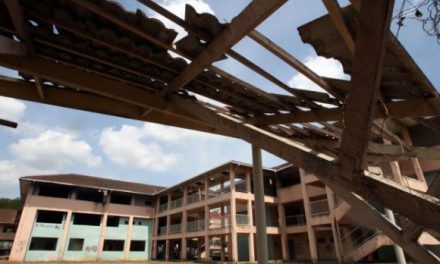Govt to ban import of all non-recyclable waste
The government will ban import of all non-recyclable solid waste, particularly plastic, says Energy, Science, Technology, Environment and Climate Change Minister Yeo Bee Yin. The measures were taken to ensure the country’s solid waste was well managed and to reduce plastic pollution, as well as ensuring Malaysia was not a dumping ground for waste from developed countries. “Any solid waste that cannot be properly recycled and does not follow the Environmental Quality Act will be banned,” she said. Plastic waste are varied, some can be recycled, but there is mixed plastic waste that cannot and is usually used by illegal factories. Recently, it was reported that Malaysia has become a dumping ground for plastic waste by other countries after China banned plastic imports. (The Star Online)
Branded residences in KL record 69% price premium, second highest in Asia
Branded residences in Kuala Lumpur recorded a premium of 69% against non-branded luxury residences last year. This was the second-highest price premium seen among Asian cities, according to Knight Frank’s Branded Residences Report: 2019. The highest premium seen in 2017 was in Bangkok, at 132% above non-branded luxury residences, followed by Kuala Lumpur at 69% Manila at 36% and Phuket at 8%. The price premiums are driven primarily by location and can vary within the same city. Branded residences are becoming popular in Kuala Lumpur as trophy assets that offer a high level of service, facilities and quality. Knight Frank noted that the fast-growing, ultra-wealthy population in Asia is fuelling demand for branded residences. (The Edge Markets)
Dr M’s ‘crooked bridge’ project may be revived
The construction of the “crooked bridge” between Malaysia and Singapore, first mooted by Prime Minister Tun Dr Mahathir Mohmad 15 years ago, is being looked into again. The prime minister had asked Johor Menteri Besar (MB) Datuk Osman Sapian if Johor needed the bridge, and indicated that he had “no problem” in reviving the project. Proposed in 2003, the bridge involved a six-lane S-shaped highway that will allow vessels to pass under it, since Singapore refused to demolish its half of the Causeway Link. At that time, the project’s cost was estimated at RM1.1 billion. RM257.4 million was paid in compensation for the project’s termination. Johor-based opposition parliamentarian Datuk Seri Wee Ka Siong questioned the decision to revive the project, citing the country’s debt and the feasibility of rebooting a terminated project worth hundreds of millions. (The Edge Markets)

Photo by Utusan Malaysia
Parliament raises fines for damage to public roads
The Dewan Rakyat passed today an amendment to the Street, Drainage and Buildings Act 1974 to increase by a hundredfold punishment for developers and utility companies that damage public roads and other infrastructure. The Street, Drainage and Building (Amendment) Bill 2018 proposed a minimum fine of RM100,000 from the current RM1,000. Clause 3 of the Bill will empower local authorities to fine those who damage or change public roads including footways, verandah ways or public property. The same clause also proposed an increase in the minimum fine from RM500 to RM50,000 for the offence of taking up pavement without prior written permission. Housing and Local Government Minister Zuraida Kamaruddin clarified that the fines were applicable only to developers and public utility companies found guilty of damaging public property or infrastructure, while the amount of the fines will be determined by the courts instead of local councils. (Malay Mail Online)
Eateries fear smoking ban may affect business
Restaurant owners and hawkers worry that a smoking ban at open-air eateries will turn away patrons who light up, their primary customer base. A restaurant owner said that the smoking ban – which will be enforced at all air-conditioned and non-air-conditioned restaurants, coffee shops, and open-air hawker centres and street stalls nationwide from January 1 – would affect his business as about 70% of his customers are smokers. Most restaurants and hawkers – including a major mamak chain – believed they would lose their smoking customers, as restaurants were among the few places people could still puff away at. A drop in smoking customers may not necessarily be made up by additional non-smoking customers either. (Malay Mail Online)





